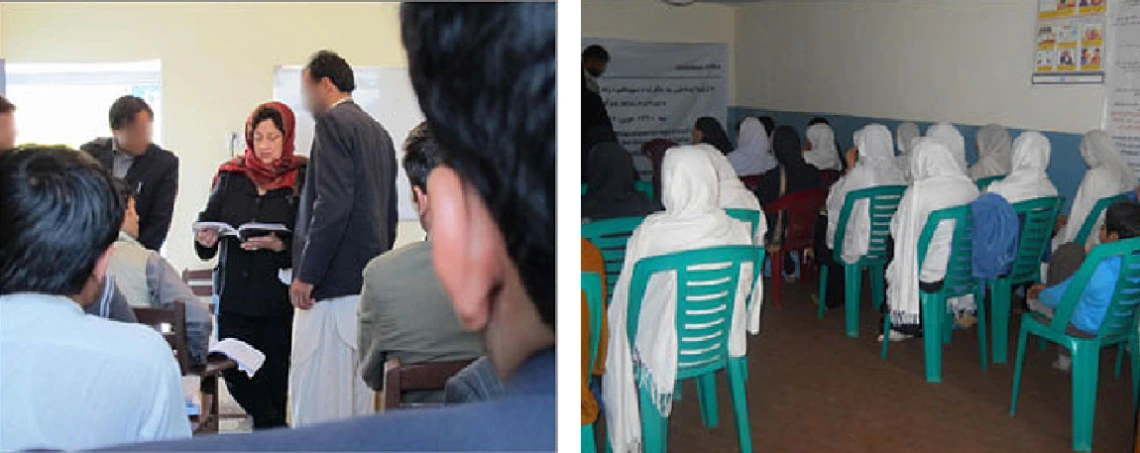Prof. Zanger: Afghan journalists, faculty need help

Prof. Maggy Zanger teaches Afghan faculty and journalists (faces blurred to protect identities).
Photos courtesy of Prof. Maggy Zanger
Nine years ago, University of Arizona Journalism Professor of Practice Maggy Zanger traveled across the globe to help Afghan professors develop a professional curriculum for their journalism departments. Now she finds herself helping in a different way, trying to support the professors and journalists stranded in Afghanistan after the sudden rise of the Taliban.
“It’s a very dangerous situation for many of (the professors),” said Zanger, who was the project director for the partnership with Nangarhar University in Jalalabad. “Journalists are targeted by the Taliban.”
Zanger, along with Professor of Practice Kim Newton, took part in the Afghanistan Journalism Education Enrichment Program, founded by the public affairs section of the U.S. Embassy in Kabul.
The three-year project, funded by a $1 million grant, brought together educators from five U.S. universities and their contemporaries from Afghanistan to help strengthen their journalism curricula.
Zanger said many of the professors they worked with were also part of the media, either as journalists themselves or as part of journalism NGOs (non-governmental organizations) or training operations.
“They are a target,” she said. “I’ve been getting some pretty gut-wrenching messages from people who are hiding, who are really in fear for their lives. It’s a very bad situation.”
Zanger has been messaging with her colleagues via the messaging app WhatsApp. She says those who are still in Afghanistan are staying put until they can find a way out, noting the country is difficult to get around, especially for those who do not live in Kabul.
“Whenever there’s a new insurgent group or a new dictator that takes over, the first thing you do is control the means of communication,” said Zanger, who trained journalists when she lived in Egypt and Iraq for nearly six years. “That’s, of course, what the Taliban want to do. They don’t want a free and independent press. That does not serve their interest. They will do everything to squash independent journalists and establish their own means of getting information to people.”
In the days following the fall of Kabul on Aug. 15, Zanger has spent her time writing letters on behalf of the journalists and professors, hoping to help them obtain the new Priority 2 (P-2) visas, which the Department of State announced on Aug. 2.
These visas, the Department of State said, are for Afghans who “were employed in Afghanistan by a U.S.-based media organization or non-governmental organization.”
As the world watches and waits to see what will happen to the journalists, as well as the interpreters who helped U.S. forces during the 20-year Afghanistan War, Zanger has hopes that senior Taliban leaders have become “sophisticated enough” to allow some reporting by the international press.
“(But) no one has hope that this is a new, improved Taliban,” she said.
- Zanger guest column for Arizona Daily Star: How you can help Afghan refugees

